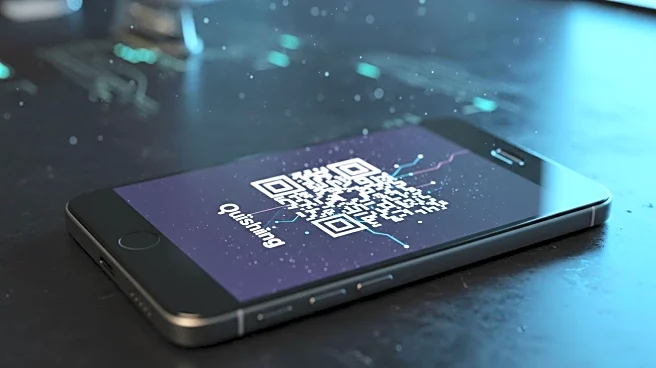What's Happening?
Security researchers at Barracuda Networks have identified new phishing techniques involving QR codes, termed 'quishing' attacks. These methods include splitting malicious QR codes into two parts or embedding them into legitimate ones to evade detection. The Gabagool phishing-as-a-service kit operators have adopted these techniques, which involve sending phishing emails with QR codes that appear benign to email security systems. When scanned, these QR codes direct users to phishing pages designed to steal Microsoft login credentials.
Why It's Important?
The emergence of 'quishing' attacks highlights the evolving nature of cybersecurity threats. As QR codes become increasingly common in digital transactions and communications, their exploitation poses significant risks to individuals and organizations. These attacks can lead to unauthorized access to sensitive information, financial losses, and compromised security systems. The discovery of these techniques underscores the need for enhanced security measures and awareness to protect against sophisticated phishing strategies.
What's Next?
Organizations and cybersecurity professionals may need to develop new strategies and technologies to detect and prevent 'quishing' attacks. This could involve updating email security systems to recognize split or nested QR codes and educating users about the risks associated with scanning unknown QR codes. Additionally, collaboration between cybersecurity firms and technology providers could lead to the development of more robust security solutions to counteract these threats.
Beyond the Headlines
The use of QR codes in phishing attacks raises ethical and legal questions about the responsibility of technology providers and cybersecurity firms in safeguarding users. As digital communication methods evolve, there may be increased pressure on these entities to ensure the security and integrity of their platforms. This could lead to regulatory changes and the establishment of new standards for QR code usage and security.








